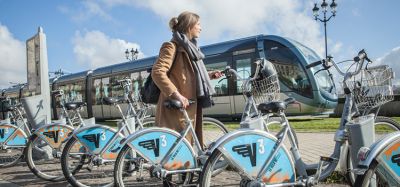The changing world of mobility
- Like
- Digg
- Del
- Tumblr
- VKontakte
- Buffer
- Love This
- Odnoklassniki
- Meneame
- Blogger
- Amazon
- Yahoo Mail
- Gmail
- AOL
- Newsvine
- HackerNews
- Evernote
- MySpace
- Mail.ru
- Viadeo
- Line
- Comments
- Yummly
- SMS
- Viber
- Telegram
- Subscribe
- Skype
- Facebook Messenger
- Kakao
- LiveJournal
- Yammer
- Edgar
- Fintel
- Mix
- Instapaper
- Copy Link
Posted: 15 October 2017 | Alex Froom - Zipabout | No comments yet
Interest in intelligent transport and Mobility-as-a-Service (MaaS) is growing, but to date, there is little to prove that the exciting talk of ground-breaking innovation is any more than just that. Alex Froom, Director of MaaS technology specialist Zipabout, examines why.
What are the obstacles to widespread MaaS integration in the UK?
The transport industry, and particularly the public sector, simply isn’t ready, largely due to a lack of resources or an over-reliance on antiquated legacy systems. Genuinely innovative MaaS programmes require not only huge amounts of real-time big data, but also the technology to extract the maximum value from it. As things stand, transport operators, infrastructure owners and even the consultancies that serve them lack the skills and experience to deliver the digital platforms needed to realise their investment in ‘smart’ programmes.
When you also consider that much of the vital data needed for an effective MaaS programme is sitting in silos held by the many operators and service providers with little or no integration and certainly no real idea what to do with it, it is hardly surprising that there remains so much uncertainty around how to take MaaS forward as an industry. Growth is being stifled and money wasted on half-baked technical developments when it should be going towards real innovation.
What is the real potential of MaaS and, given the challenges, how can it move forward?
If you take the definition of MaaS as developed by the Transport Systems Catapult, MaaS focuses on ‘providing a transport-related service(s) which meets the requirements of a customer’. This means that it has the potential to go far beyond integrating multimodal transport with a single payment mechanism, which seems to be a predominant focus. MaaS should be about giving people a choice when it comes to anything and everything regarding mobility, and crucially, aligning it with their lifestyle and individual needs.
The key to MaaS, therefore, lies in the personalisation of the transport network itself – transcending operator models to create something that truly revolves around people. If we do this, MaaS has the potential to enable long-term behavioural and environmental change.
What would this mean in practice to a consumer?
Take journey planning as an example. It is a commoditised product yet remains in the dark ages; it no longer reflects the way people want to travel. The sector needs a new dynamic approach to intelligent journey planning – one that cannot only predict and react to live conditions, but that can also be tailored to best serve the region; lift-share schemes, cycle schemes, autonomous vehicles, congestion and healthy living aspirations are rarely considered. In essence, consumers need a journey planner that is truly personalised to the needs of the individual, not one that equates personalisation of the customer experience to the ability to save a previous journey.
THE ZIPABOUT PLATFORM
We are the data platform behind MaaS. We combine the increasing proliferation in open transport data with advanced machine learning and AI, refined in the online advertising sector to revolutionise intelligent transport. We are the one technology platform that can facilitate any MaaS programme – we integrate big data from multiple sources and have developed the unprecedented technology to process it in real-time on a huge scale, generating unique and predictive passenger and service level insight. We are also the only platform globally to offer specialised two-way personalised communication, bridging the gap between operator and passenger, and providing the tools to reduce the effects of disruption and improve the customer experience.
Related topics
Multimodality
Issue
IT Issue 1 2017
Related organisations
Zipabout
Related people
Alex Froom








